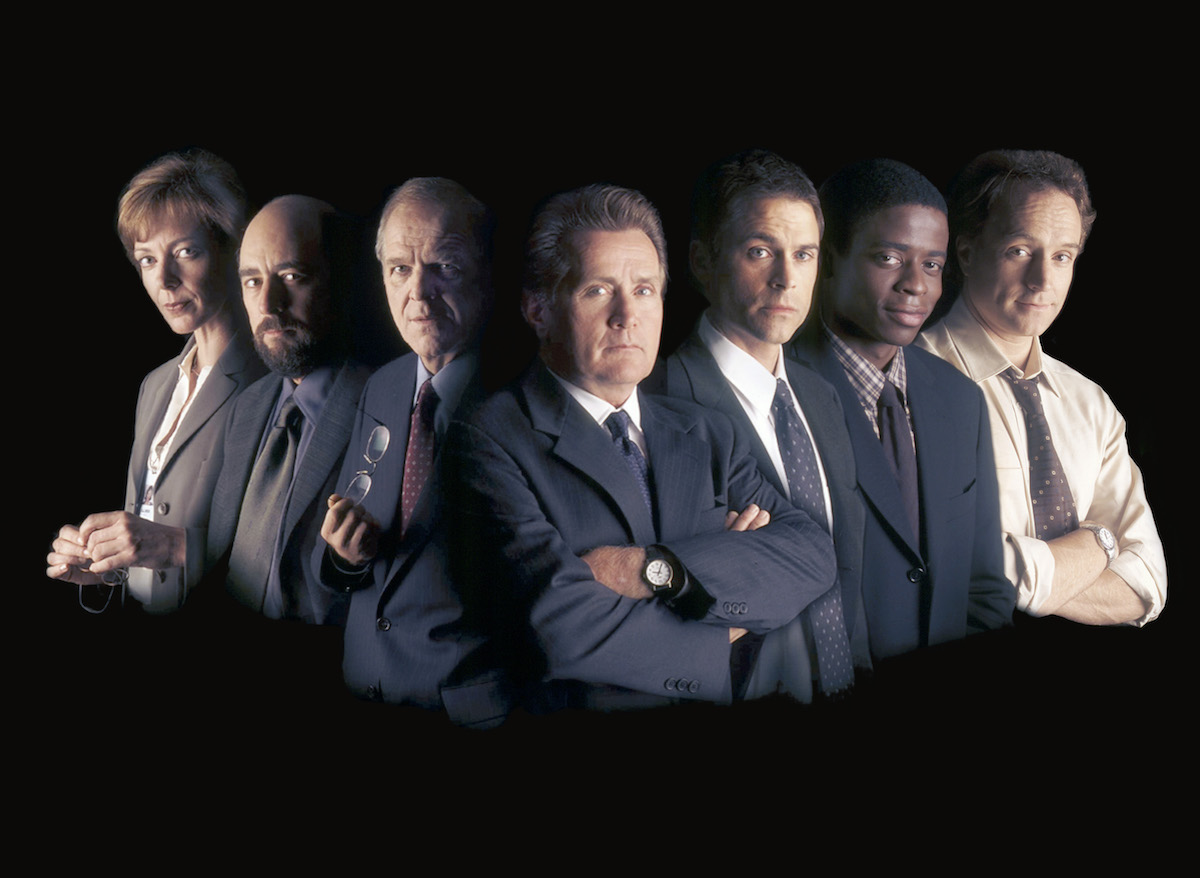‘The West Wing’: Aaron Sorkin Stopped Watching After Season 4 After Larry David’s ‘Seinfeld’ Advice
Aaron Sorkin created one of the greatest political dramas in TV history: The West Wing. In a time when the political climate is more fractured and divisive than ever, this show from the turn of this century was a refreshing take on what political discourse could be if everyone focused on the policy as opposed to mudslinging.
While the show ran for seven seasons, Sorkin was only on the team for four of them. So what did Sorkin do after he left? According to one story, he stopped watching it altogether thanks to the advice he received from another famous TV writer: Larry David.
What was ‘The West Wing’ about?
The West Wing imagined a world with civil political discussions, where rivals from across the political spectrum could disagree respectfully while maintaining a sense of decorum. The show followed the fictional administration of President Jed Bartlet, portrayed by Martin Sheen. His staff was made up of some elite acting talent, including Rob Lowe, Bradley Whitford, Allison Janney, John Spencer, Dule Hill, and Richard Schiff.
The show doubled as a civics and government lesson for anyone looking to learn more about how the U.S. government should actually function. Whether you agreed with the politics of the characters on the show, it stood out for depicting principled characters who stood for what they believed in.
Rather than focus on the bluster and bravado of modern politics, it highlighted the inner workings of the presidential staff as they worked mostly behind the scenes. According to IMDB, the show ran from 1999-2006. While the original plan was to only feature the president in four episodes per season, Sheen’s performance early on was so effective that he became a regular cast member.
Aaron Sorkin’s role in the creation of ‘The West Wing’ and subsequent departure

Sorkin created the show. Much like some of Sorkin’s other TV shows like The Newsroom and Sports Night, it was known for its witty banter and snappy conversations. Sorkin is known for writing crisp, clever dialogue, and this show featured plenty of it.
The show was Sorkin at his best: dissecting a well-known cultural institution. According to Sorkin’s IMDB profile, he penned 41 episodes of the series. He left in 2003, following the show’s fourth season.
The show soldiered on without him, as impossible as that may seem. Sorkin was a part of the show’s DNA, and he seemed to be forever linked to it. That said, he wasn’t the first series creator to leave a show before the end of its run. Another famous one also did that: David, who left Seinfeld after season seven. David had advice for Sorkin following his departure.
Larry David’s advice to Aaron Sorkin
It must have been hard for Sorkin to deal with leaving a show he created. After all, he put so much work into it and it was tied so closely to him and his writing style.
One wonders how it must feel to see a series you created after you leave it. Sorkin likely would have worried about the direction the show would go in, now having no control or the ability to change it. To deal with this, he took David’s advice: stop watching the show.
According to Mental Floss, Sorkin quit watching the show when he left. Sorkin said David told him not to tune in:
“Larry David had left Seinfeld a few seasons before the show ended and he called me and said, ‘You can never watch The West Wing again. Either the show is going to be great without you and you’re going to be miserable, or the show is going to be less than great without you and you’re going to be miserable.’
Sorkin added he tried to watch about 15 seconds of the first episode after he left, but couldn’t make it through. After that, he followed David’s advice.


